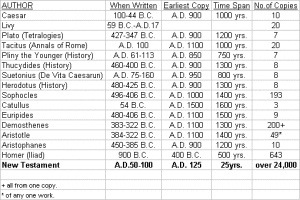Integrity of Plato’s Text
The Integrity of Plato’s Text is something that must be taken on trust, since we have very few early versions, the oldest of which dates from well over a millennium after Plato and are Greek editions based on Latin translations of even earlier Greek manuscripts. Add to that the fact that until around a thousand years ago documents were written in scriptuo continua, which is writing without any spacing between words or sentences, no punctuation and all written in what we now call upper case or capital letters.
The paragraph above, is shown below as an example in scriptuo continua from which you can see the difficulties that copyists were confronted with, in order to faithfully transcribe texts over many centuries:
THEINTEGRITYOFPLATOSTEXTISSOMETHINGTHATMUSTBETAKENONTRUSTSINCEWEHAVEVERYFE WEARLYVERSIONSTHEOLDESTOFWHICHDATESFROMWELLOVERAMILLENNIUMAFTERPLATOANDA
REGREEKEDITIONSBASEDONLATINTRANSLATIONSOFEVENEARLIERGREEKMANUSCRIPTSADDTOTH
ATTHEFACTTHATUNTILAROUNDATHOUSANDYEARSAGODOCUMENTSWEREWRITTENINSCRIPTUOCO
NTINUAWHICHISWRITINGWITHOUTANYSPACINGBETWEENWORDSORSENTENCESNODISTINCTIONBE
TWEENUPPERANDLOWERCASEANDNOPUNCTUATION.
The potential for error was enormous, a fact borne out by the thousands of transcription errors to be found in the various ancient codices of the Bible. A paper from Professor Bruce M. Metzger gives a brief outline of the problems facing Bible translators(b).
Although most of these mistakes were minor and genuine accidents, a few were deliberately introduced to advance one or other of the many competing theological niceties that were quite common among early ‘Christians’.
A popular demonstration of the risks that scriptuo continua can generate is shown in the following phrase “godisnowhere”, which could read “god is now here” or “ god is no where”.
In the case of Plato’s Atlantis texts, we have a document that is much shorter than the Bible, but on the other hand we have very few early manuscript copies of Plato’s work, while there are literally thousands of manuscripts of the New Testament and the time span between the original and earliest is only decades in the case of the New Testament but over a millennia in Plato’s case(a). However unlike the Bible, Plato’s work was not used as a weapon in any ideological war.
Consequently, we can be reasonably sure our texts are free from deliberate distortion, but must accept the inevitability of some accidental corruption. Debate has centred on the meaning of individual words in Plato’s narrative, some important, but nothing absolutely critical.
(a) https://www.biblicaltheology.com/Research/MartinezR02.html
(b) Bibliotheca Sacra 150 (July-September 1993 p273-84)

